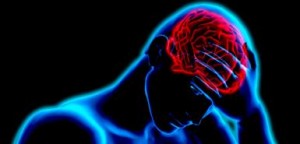 Pain is a simple enough concept to grasp. You stub your toe, shout, perhaps utter a few expletives, rub it better and it eventually fades. But neuroscientists are realising that pain is much more complex than anyone thought possible, comprising not just physical sensations, but emotional ones too. Pioneering studies are providing insights into why some people experience debilitating chronic pain long after an injury has healed, as well as why some are more prone to pain than others, and why certain people never recover from bereavement. Continue reading…
Pain is a simple enough concept to grasp. You stub your toe, shout, perhaps utter a few expletives, rub it better and it eventually fades. But neuroscientists are realising that pain is much more complex than anyone thought possible, comprising not just physical sensations, but emotional ones too. Pioneering studies are providing insights into why some people experience debilitating chronic pain long after an injury has healed, as well as why some are more prone to pain than others, and why certain people never recover from bereavement. Continue reading…Source: The Times , Vivienne Parry, July 26, 2008
